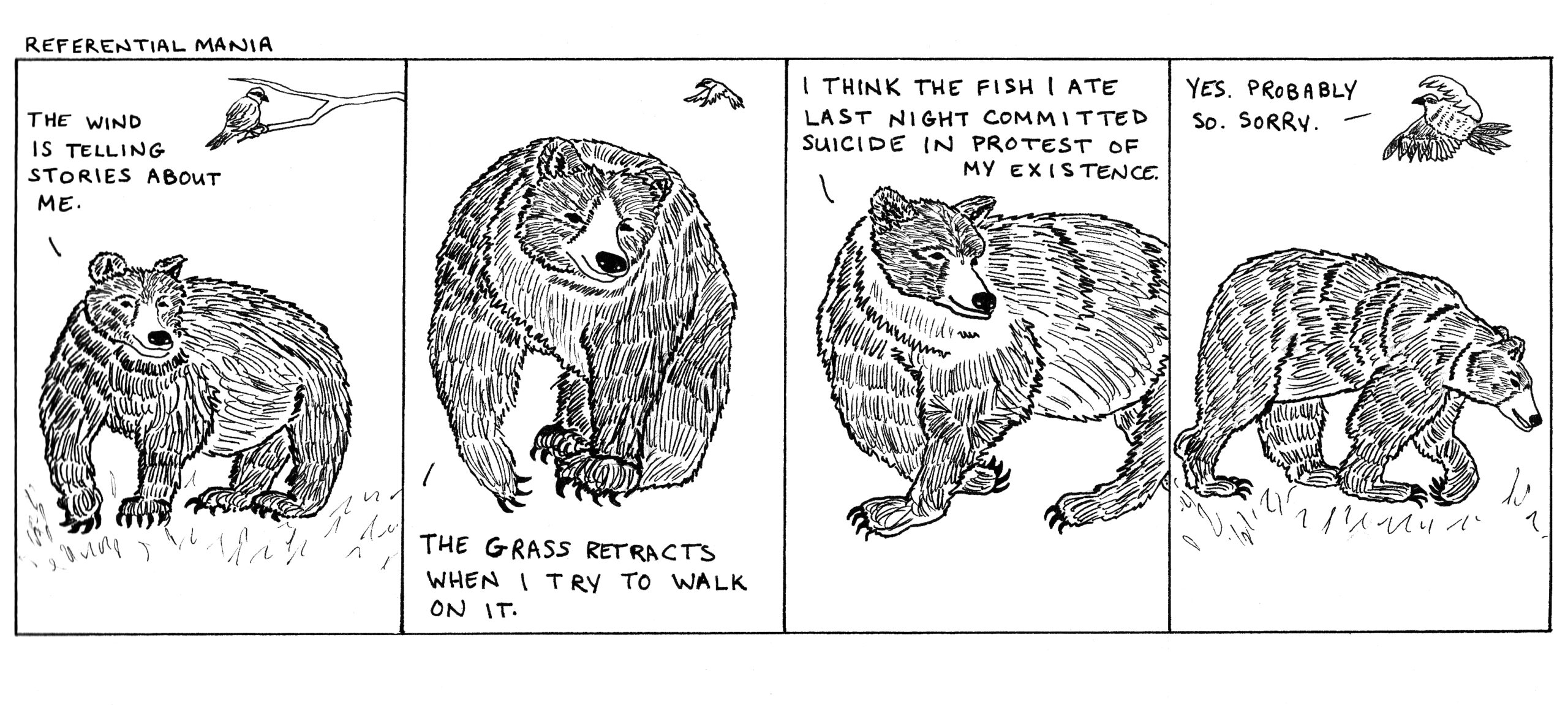For any of you who are unfamiliar with the concept of referential mania, I strongly recommend reading the Vladimir Nabokov story “Signs and Symbols” (which is, I think, the original source of the disease: a particularly uncanny and frightening sort of narcissism). The New Yorker has a version online, but if you have the time to go to the library or the money to go to a bookstore (ha ha, go to, as if you wouldn’t just order it online) I recommend reading it from an edition of Nabokov’s collected stories. The New Yorker has a very particular editorial style, and I think there are slight alterations in their version – worth going to the original.
You might also look into the recent movie Take Shelter, starring Michael Shannon and America’s current favorite China doll, Jessica Chastain. (That sounds snarky. I think she’s a marvelous actress.) This movie, while not documenting referential mania per se, features a hero plagued by a similar problem: Michael Shannon’s character, Curtis, has dreams about a terrible oncoming storm, which seems to be portented by everything around him. He throws his life into building a bomb shelter, but no one believes him about what is to come. His family has a history of mental illness, so he himself realizes that there is a chance that the storm is only in his head. But the fear is so real, and so driving.
Anyway, someone please watch it so I can talk to you about it. Being mired in the invisible terror of the world is an interest of mine.
